There are not all that many things I am wont to do… but there are some. I am wont (definition: one’s customary behavior in a particular situation) to go for a ski every year before the super bowl comes on TV. I am wont to record a podcast episode with my compatriot Steve Manuel every Friday afternoon. I am wont to impose a steep dad-tax on each dessert platter that I serve to my three daughters at our weekly Sabbath meal.(It’s for their sake! Suppose the meal is poisoned! My tasting is protective!)
And since the founding of Abraham’s Wallet, one of the traditions that we have established is that I like to rip off a little blog post in which I tell you about some of the best books I read in the previous year. Mind you, what follows are not new releases from 2021. Rather, they are books that I have read (and loved) in the past 12 months. If you’re more of an audio guy (though we know you’re not… because here you are reading words on a screen) then you can also keep a close eye on the Abraham’s Wallet podcast to hear Jeff Davenport and myself discuss these and other books.
But since you’re the read-y type, hey. Here we go:
The Power and The Glory, by Graham Greene
If I had to pick one read from the past year that I’d recommend to folks… this would be the one. Considered to be Graham Greene’s magnum opus, this is the story of a Mexico that has been taken over by a fascist regime that outlawed Catholicism and forced all priests to either deny the faith (and marry), or face the firing squad. The Power and The Glory follows the last priest in Mexico as he seeks to avoid the government and struggles with his own faith amidst doubt, alcoholism and a history of sin. It’s powerful. And glorious.
The Killer Angels, by Michael Shaara
Michael Shaara took the journals of the key players in the battle of Gettysberg and created this novel with remarkable accuracy to those notes detailing the few days surrounding arguably the most pivotal conflict in the American Civil War. I’m not a Civil War geek, but this book drove me to read a couple of other Civil War novels… None of them came close to being as gripping and powerful as The Killer Angels.
Dracula, by Bram Stoker
I think it’s worthwhile to read the favorite books of the people who you love. So when my brother-in-law told me that his favorite novel was Dracula, I reluctantly grabbed a copy at the local thrift store. I don’t like monster stories, and I’m not a huge fan of vampires so my expectations were moderate, at best. However, I surprised myself by digging this book. It’s not really a vampire story; it reads more like a Victorian-era detective novel (think Sherlock Holmes). There is a reason why there have been over 200 film adaptations of this book (we’re still waiting on one of those to be done well, unfortunately), and unlike many novels written in the 19th century… it’s a page turner.
Pilgrim’s Progress, by John Bunyan
Pilgrim’s Progress is the best selling English novel of all time and in the top 10 bestselling books of all time. I had never read it, so I figured that 2021 would be as good of a time as any to do that. Boy I’m glad I did. The story of Christian journeying towards the Celestial City is very Dante-esque in nature, but with fewer digs at 14th century popes (though Bunyan does level his pen at the Catholic church as well). As the pilgrim journeys towards heaven and meets various people who have become mired on their way there, I found myself repeatedly repenting and thanking the LORD for His careful provision in my life. Not the type of thing I get out of a standard novel! This book is an excellent novelization of the Christian journey and it’s no wonder it’s beloved in every generation.
Vindiciae Contra Tyrannos, by Stephen Junius Brutus
Just in case you’ve not up on your 16th century French history, a series of French rulers, starting with Charles IX in 1572, dedicated themselves to persecuting Protestants. Their amazing success at their evil craft brought Protestant numbers crashing from their peak population of 10% of France’s overall population down to less than 1,500 people a century later. During this time, the “pamphlet” (side note: for educated Frenchmen in the late 1500’s, a meaty scriptural exposition of 200 pages was considered a mere pamphlet… something to read in a sitting. Today I fear we’d struggle to hold the attention of most American churchgoers for ONE PAGE of such content. Sigh…) titled Vindiciae Contra Tyrannos was published under the pseudonym Stephen Junius Brutus (you don’t use your real name when the king is rooting out dissidents and beheading them for sport). Here’s why I read, and loved, this book: These French protestants asked questions that are immensely relevant to us in 2021, such as, “whether it be lawful to resist a prince who does infringe the law of God, or ruin His Church: by whom, how and far is it lawful”. The book is not a quick read, but it anchors its opinions so deeply in scripture that it remains a wonderful guide for how we are to interface with a government seeming to oppose God, even today. If you’re tired of hearing pastors give trite one-liners about Romans 13 when you ask how we are to engage with the authorities that God has placed in power, you’ll find it worth your time to chew on this book for a good long while.
The Forgotten Fear, by Albert N. Martin
While The Power and The Glory was my favorite book of the year, I have to say that nothing I read has as profound of an impact on me as did The Forgotten Fear. Albert N. Martin is a retired Baptist preacher who wrote this book to provide a stark warning. “To be devoid of the fear of God is to be devoid of biblical and saving religion”. He explores the concept of fear of the Lord, explains that it means both an actual, trembling type of fear AND the awe that we moderns tend to more commonly associate with the terminology. Once he’s defined the terms, he proves rather easily that this theme of the Bible shows up constantly throughout the Old and New Testaments. And finally, for those who feel like they have felt some vague sense of this fear in their past but recognize that it’s not nearly as central to their experience as the Bible seems to describe as normative in a Christian’s life, Martin wraps the book up with practical tips on how to build the fear of God in your life. I can’t say enough good things about this quick read – I’ve read it three times since I picked it up in October. This book pairs nicely with the far more popular new release from Dane Ortlund, Gentle and Lowly.
I’ll also give you a few honorable mentions that you’ll have to listen to the podcast to hear more details on! For a spy novel turned political theory exploration, try out Pulitzer Prize winner The Sympathizer by Viet Thanh Nguyen. Want to poke around in one of Paul’s confusing commands that almost nobody regards today but that almost every Christian in America held to only a few short decades ago? Try Head Coverings: A Forgotten Christian Practice for Modern Times, by Jeremy Gardiner. (Note: I’m not telling you to practice head covering, but I am telling you to HAVE AN INFORMED TAKE on these strange commands that we read in the Bible and seem to ignore today.) Want a good old fashioned sea-story? Can’t go wrong with Master and Commander by Patrick O’Brian.
I think I read more books in 2021 than in any year of my life previously. It had a hugely positive impact on me (for example, it correlated with a lifetime low of television hours consumed and possibly a lifetime high of rollicking conversations around topics of depth with friends). I’d encourage you all to make more time to read- especially in our increasingly illiterate age. Start with 15 minutes before you fall asleep and go from there, but find a way to work it into your daily routine and you’ll reap benefits all over your life!
*Mark Parrett is one of the founders of Abraham’s Wallet. When not blogging for you here, he’s raising a family in Salt Lake City, UT and working as a financial planner at Outpost Advisors.






